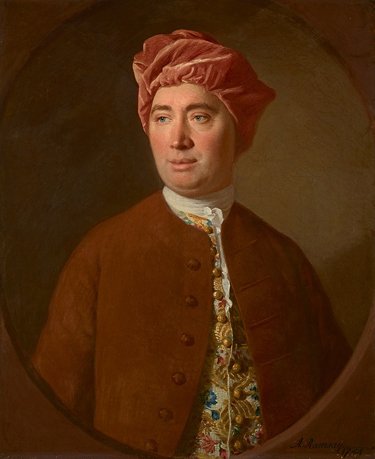Obviously, the Principal and Vice-Chancellor of the University of Edinburgh Did None of the Things I Suggest Below
Adam Smith, Cancellations, David Hume, Peter Mathieson, University of Edinburgh

David Hume Monument, Edinburgh.
If I were Professor Peter Mathieson MBBS(Hons)(London), PhD(Cambridge), FRCP(London), FRCPE, FMedSci, Principal and Vice-Chancellor of the University of Edinburgh, before I renamed the David Hume Tower, I would read his Treatise of Human Nature (1739–1740), his Enquiries concerning Human Understanding (1748) and concerning the Principles of Morals (1751), his six volume History of England, and his posthumously published Dialogues concerning Natural Religion (1779), and I would compare Mr. Hume’s achievements and contributions to Humanity to my own and I would tremble with embarrassment at the very notion of such an insignificant contemporary pygmy and nobody as myself setting up in business to pass judgment on a demigod and giant, one of my own country’s greatest all-time thinkers and very possibly my university’s greatest single alumnus.
I would additionally have taken pains to read Adam Smith’s Letter on the Death of David Hume, which concludes:
I received the following letter from Doctor Black.
‘Edinburgh, Monday, 26th August, 1776.
Dear Sir,
Yesterday about four o’clock afternoon, Mr. Hume expired. The near approach of his death became evident in the night between Thursday and Friday, when his disease became excessive, and soon weakened him so much, that he could no longer rise out of his bed. He continued to the last perfectly sensible, and free from much pain or feelings of distress. He never dropped the smallest expression of impatience; but when he had occasion to speak to the people about him, always did it with affection and tenderness. I thought it improper to write to bring you over, especially as I heard that he had dictated a letter to you desiring you not to come. When he became very weak, it cost him an effort to speak, and he died in such a happy composure of mind, that nothing could exceed it.’
Thus died our most excellent, and never to be forgotten friend; concerning whose philosophical opinions men will, no doubt, judge variously, every one approving, or condemning them, according as they happen to coincide or disagree with his own; but concerning whose character and conduct there can scarce be a difference of opinion. His temper, indeed, seemed to be more happily balanced, if I may be allowed such an expression, than that perhaps of any other man I have ever known.
Even in the lowest state of his fortune, his great and necessary frugality never hindered him from exercising, upon proper occasions, acts both of charity and generosity. It was a frugality founded, not upon avarice, but upon the love of independency. The extreme gentleness of his nature never weakened either the firmness of his mind, or the steadiness of his resolutions. His constant pleasantry was the genuine effusion of good-nature and good humour, tempered with delicacy and modesty, and without even the slightest tincture of malignity, so frequently the disagreeable source of what is called wit in other men. It never was the meaning of his raillery to mortify; and therefore, far from offending, it seldom failed to please and delight, even those who were the objects of it.
To his friends, who were frequently the objects of it, there was not perhaps any one of all his great and amiable qualities, which contributed more to endear his conversation. And that gaiety of temper, so agreeable in society, but which is so often accompanied with frivolous and superficial qualities, was in him certainly attended with the most severe application, the most extensive learning, the greatest depth of thought, and a capacity in every respect the most comprehensive.
Upon the whole, I have always considered him, both in his lifetime and since his death, as approaching as nearly to the idea of a perfectly wise and virtuous man, as perhaps the nature of human frailty will permit.
I ever am, dear Sir,
Most affectionately your’s,
ADAM SMITH.




